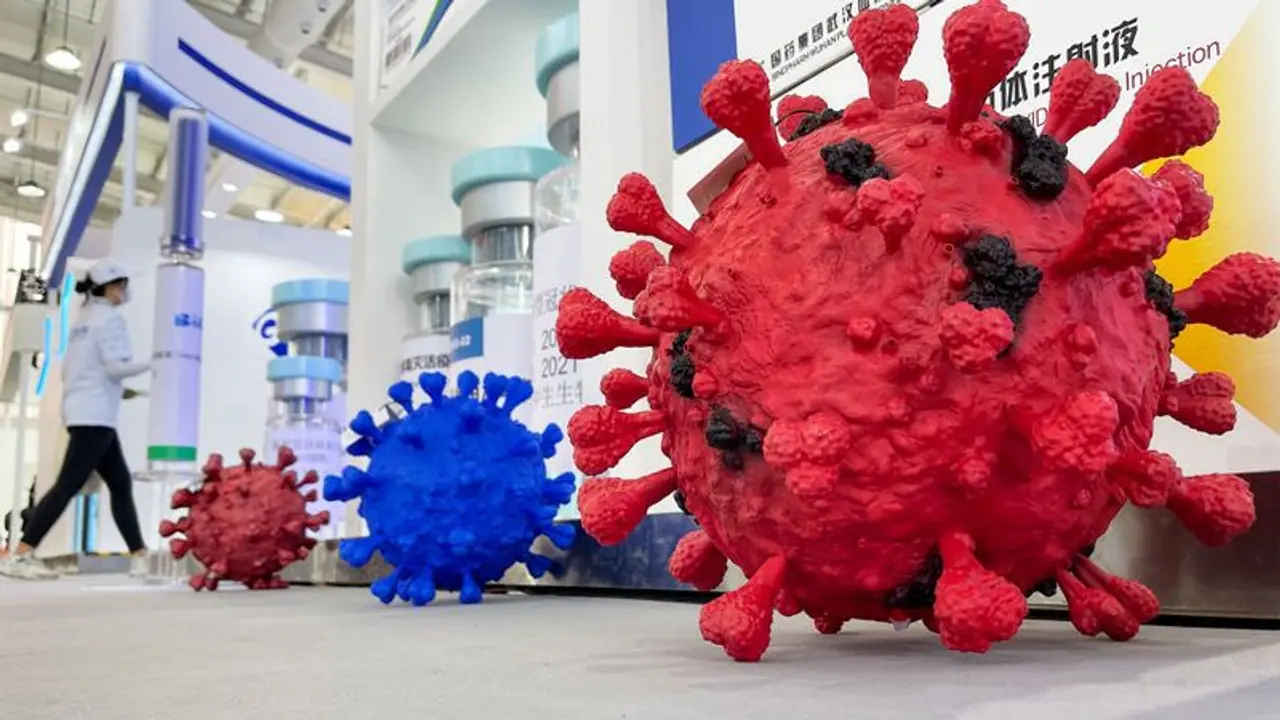People infected with S-CoV-2 exhale infectious virus in their breath, and those infected with the Alpha variant put 43 to 100 times more virus into the air than people infected with the original strains of the virus, according to a team led by researchers at the University of Maryland in the United States.
According to recent research, S-CoV-2 variations are becoming more adept at travelling through the air, and individuals should wear tight-fitting masks and improve ventilation, in addition to getting vaccinated, to help block the virus that causes COVID-19 from spreading. People infected with S-CoV-2 exhale infectious virus in their breath, and those infected with the Alpha variant put 43 to 100 times more virus into the air than people infected with the original strains of the virus, according to a team led by researchers at the University of Maryland in the United States.

The study, published in the journal Clinical Infectious Diseases, also discovered that loose-fitting fabric and surgical masks cut the quantity of virus that enters the air surrounding sick patients in half. According to Don Milton, a professor at the University of Maryland School of Public Health, the study adds to the notion that airborne transmission is essential. He said that the Delta version, which is now spreading, is significantly more infectious than the Alpha variant. According to the research, the variations are growing stronger at travelling through the air; therefore, in addition to vaccination, we need to improve ventilation and wear tight-fitting masks to help limit the spread of the virus.
Also Read | COVID-19 pandemic led to anxiety, depression, had psychosocial impact among healthcare workers: ICMR study
According to the researchers, the quantity of virus in the air from Alpha variant infections was significantly more — 18 times higher — than could be explained by increased viral levels in nasal swabs and saliva. These significant increases in airborne virus from Alpha infections happened before the Delta variety arrived, according to the researchers, and imply that the virus is evolving to be better at flying.
The study examined how much S-CoV-2 is inhaled into the air and tested how many fewer virus patients infected with COVID-19 exhaled into the air after putting on a cloth or surgical mask to see if face masks work in preventing the virus from spreading among people. The researchers discovered that wearing a face mask lowered the number of virus-laden particles in the air surrounding a person with COVID-19 by around 50%. The loose-fitting fabric and medical masks, on the other hand, did not prevent the contagious virus from entering the air, they said.
Also Read | Study reveals 6 feet distance may not be enough to curb spread of virus indoors
